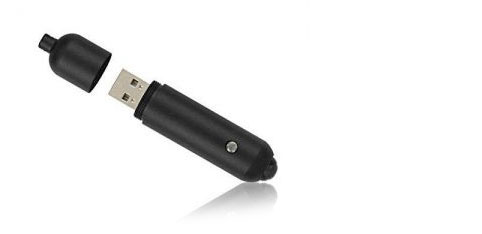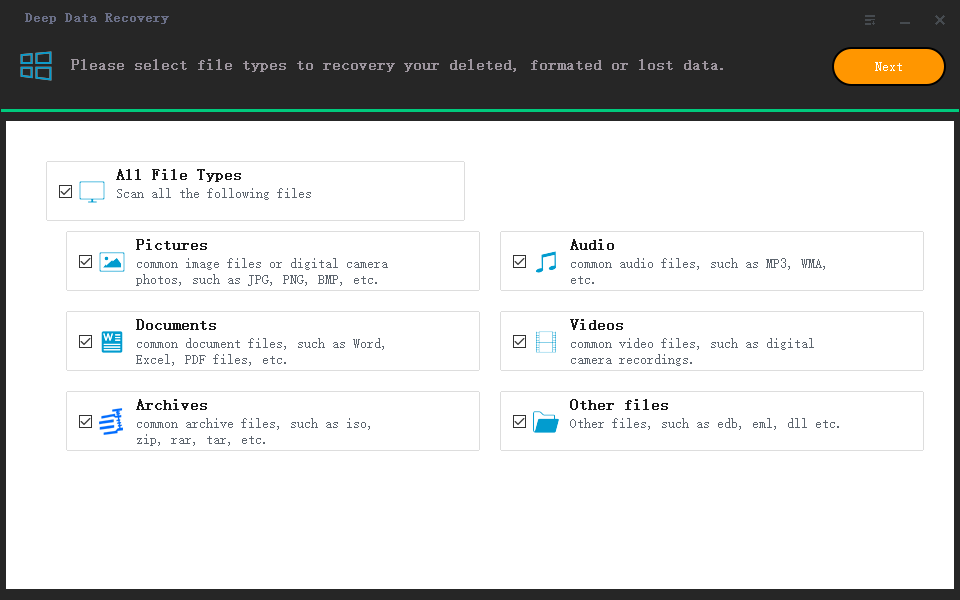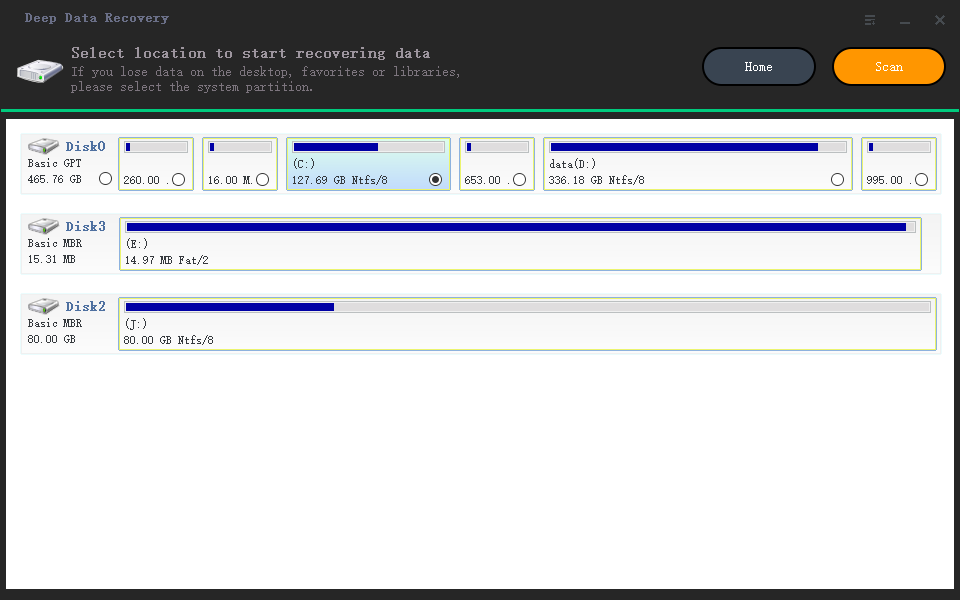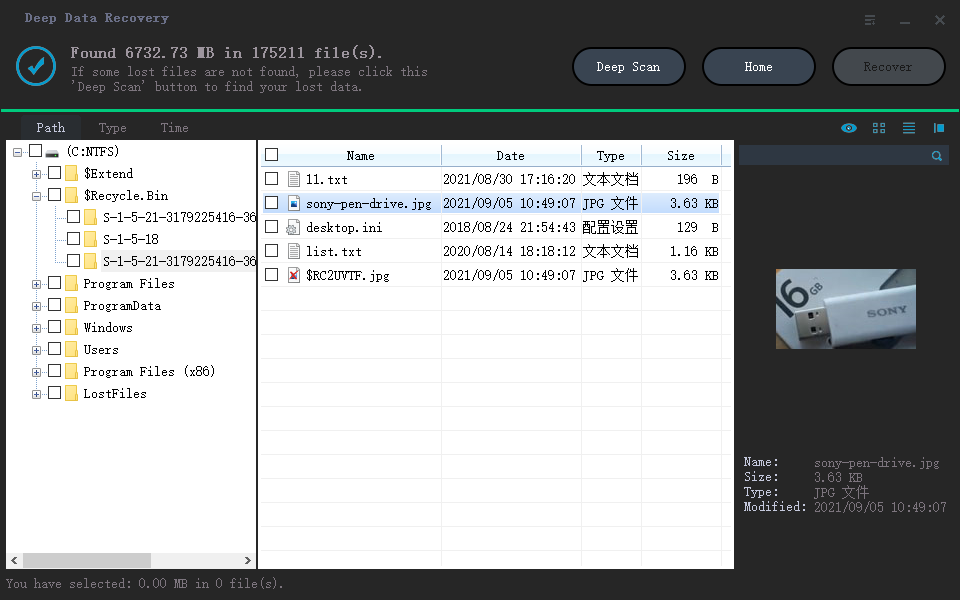Unformat Pen Drive to Recover Formatted Pen Drive Data
Quick Navigation:
- Tips for After Formatted Pen Drive
- How to Unformat Pen Drive in Windows PC or Mac
- Simple Steps to Unformat Pen Drive on Mac or Windows.
- Step 1. Install the Pen Drive Unformat Tool
- Step 2. Connect Your Formatted Pen Drive with Computer
- Step 3. Unformat Pen Drive Files
- Step 4. Select formatted pen drive to scan
- Step 5. Unformat pen drive

A pen drive is a convenient portable device that allows you to take files anywhere, with its large storage space making it easy to store files. However, sometimes issues may arise that require formatting the device to resolve them.
- If the pen drive is corrupted, formatting it may resolve the issue. However, formatting will erase all data on the drive, so it's essential to back up any important files before proceeding.
- If the pen drive is not recognized by your computer, it's likely due to a software or hardware issue. Try restarting your computer, as sometimes a simple reboot can resolve the problem.
- Files on the pen drive are infected with a virus, and your computer's anti-virus software warns that formatting the drive is necessary to prevent the virus from spreading to your computer.
- The issue you're experiencing with your pen drive displaying as RAW or prompting to format it might be due to a corrupted file system. This can occur when the pen drive is removed improperly, or when it encounters a power failure while writing data. To resolve this, you can try using a tool like Hiren's BootCD, which has a disk editor that can help you recover the drive.
- If your pen drive is not opening and you're getting an error, it's possible that the drive needs to be formatted. Formatting the drive will erase all data on it, so make sure you have backed up any important files before proceeding. If you're sure you want to format the drive, you can usually do so by right-clicking on the drive in File Explorer, selecting "Format," and following the prompts. This should clear up any issues and make the drive usable again.
Formatting a pen drive can resolve common issues, but it permanently deletes data. However, if you realize you've formatted it and lost important files, you can still try to unformat the pen drive. To increase the chances of successful unformatting, follow the steps below.
Tips for After Formatted Pen Drive
To avoid issues when unformatting your pen drive, keep it still and untouched until you're ready to proceed. Don't use it or open it, as formatting will delete existing files, but they'll still be stored in the pen drive, invisible but waiting to be overwritten. Continuing to use the pen drive after formatting may cause unformatting failure in Windows or Mac.
To recover files from a formatted pen drive, find a professional pen drive unformat tool as soon as possible, as manual recovery or using Windows/Mac Command line is not possible.
To recover formatted pen drive data, follow the instructions of the pen drive unformat tool in Windows or Mac. The sooner you act, the more files you'll be able to recover.
How to Unformat Pen Drive in Windows PC or Mac
When it comes to unformatting a pen drive, Deep Data Recovery is the go-to software. As a professional pen drive unformat tool, it can completely recover data from formatted pen drives, making it the most powerful and trustworthy option available. Its exclusive features set it apart from other format recovery tools, allowing for quick and stable unformatting.
Your Safe & Effective Unformat Pen Drive tool
- The software supports over 500 file types, encompassing a wide range of digital content such as images, videos, documents, emails, spreadsheets, and many more.
- The unformat pen drive is fully compatible with various operating systems, including Windows 10, Windows 7, Windows XP, Windows 8, Windows Vista, and Mac OS X.
- Recover formatted pen drive data with ease in just 3 simple steps, requiring no technical expertise.
You can click the download link to get the Unformat Pen Drive tool now.
Simple Steps to Unformat Pen Drive on Mac or Windows.
Step 1. Install the Pen Drive Unformat Tool
To recover data from a pen drive, click the download link above to get the pen drive recovery online program. Double-click the installation package to install the software on your computer, which is virus-free and compatible with Windows or Mac. There will be no problem installing it on your computer.
Step 2. Connect Your Formatted Pen Drive with Computer
Insert your pen drive into the slot on your Windows PC/Mac to connect it with your computer. This is a straightforward process that requires no additional steps, simply plug it in and it will be recognized by the computer.
Step 3. Unformat Pen Drive Files
Launch the program, and supported file types will be displayed on the screen. You can unselect the option you don't look for. If not, then keep the "All File Types" option selected and hit the "Next" button.

Step 4. Select formatted pen drive to scan
Find the target pen drive, select it to scan, and click the "Scan" button on the main window.

Step 5. Unformat pen drive
After scanning, the results are displayed in the window, with all files sorted into categories. You can unfold the corresponding file types to view all files within them. Before recovering, it's a good idea to preview the files to ensure they're the ones you need, saving time by avoiding unnecessary recoveries. Once you've selected the desired files, click "Recover" to save them to your computer.

The software provides a "deep scan" option in the result window, allowing users to scan more files if the initial result is not satisfactory. This feature enables users to re-scan specific files that may have been missed in the initial scan, potentially uncovering hidden threats or malware. By offering this option, the software empowers users to take a more thorough approach to their system's security, giving them greater control over the scanning process and increasing the chances of detecting and removing potential security risks.
Related Articles
- How to Unformat Partition in Windows 10/7/8/Vista/XP
- How to Unformat SD Card on Mac or Windows | Undo Format SD Card
- Unformat USB Drive - How to Unformat USB to Get Formatted Data Back
- Online Memory Card Recovery Software to Recover Deleted or Lost Data
Looking for a memory card recovery online software? You can download the data recovery for memory card online to recover deleted, fotmatted or lost data from memory card. - How to Open Download Files in Windows/Mac Chrome/Firefox/Microsoft Edge
This article tells you how to open any file downloaded in Windows and Mac as well as change the Download folder path. If you accidentally deleted or lost downloads in the Download folder, try Deep Data Recovery to recover them. Check out the details now.